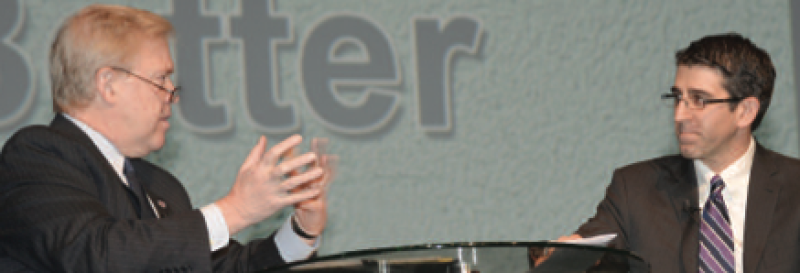Speaking to the AIPLA's Q Todd Dickinson during the opening plenary (below), Colarulli noted that many of the issues that were not included in the AIA remained of interest to many members of Congress. “That’s what this current bill tries to address,” he said, adding that “a broader audience” is now shaping the patent debate, including app developers and the retail industry.

Chairman Goodlatte’s bill, which comes after two discussion drafts were circulated earlier this year, seeks to tackle abusive patent litigation. It is the latest of several Congressional initiatives to address the issue, and may have the highest likelihood of being enacted.
The bill has bipartisan support, with 10 co-sponsors. Announcing it on Wednesday, Goodlatte said: “The bipartisan Innovation Act is designed to eliminate the abuses of our patent system, discourage frivolous patent litigation and keep US patent laws up to date. These important actions will help fuel the engine of American innovation and creativity, creating new jobs and growing our economy.”
Among other things, the bill would:
require patentees to disclose more details at initial pleading;
make fee shifting easier;
increase transparency by requiring parties to reveal information on who has an interest in patents;
limit discovery until after a claim construction ruling; and
provide for easier stays in customer suits.
It also makes a number of changes to the AIA, including to the CBM review procedure – though does not go as far on this issue as some members of Congress would like.
A House Judiciary Committee hearing on the bill will take place on Tuesday and a bill in the Senate is also expected soon.
Colarulli said the legislation addresses four out of the seven legislative recommendations made by the White House in June this year and is “narrowly focused on cost concerns”. He added that the changes aim to promote consistency in the courts and increase transparency, including through better information on ownership at the USPTO and in courts.
Asked to predict what would happen, Colarulli said: “I think it will pass. The question is timing.” He added that the bipartisan support for patent litigation reform is key: “It’s one of the few issues where [bipartisan action] can happen in Congress."









